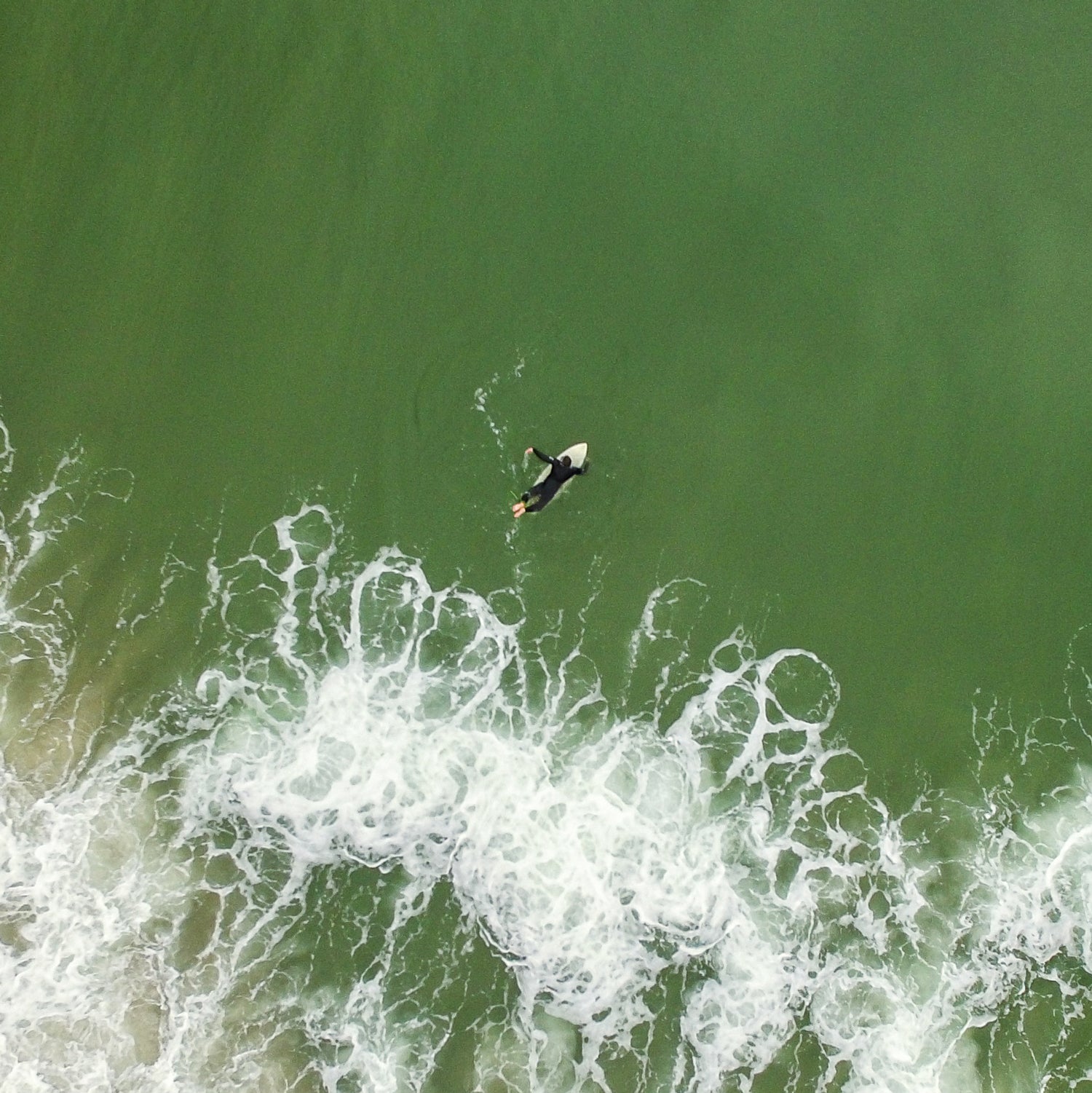Pandemic climbing stories came first. Stop-and-go traffic at Joshua Tree, people flocking to Bishop, California, for all-day bouldering at the Buttermilks and then beers at the brewery. Next up, an American surfer in Costa Rica violated a beach��closure only to get with a twitchy trigger finger. Not long after that,��some random stand-up paddleboarder in Malibu noticed that widespread civic responsibility—fellow citizens��doing their part by staying home—left the waves uncrowded, so he paddled out and caught a few until police in a powerboat cornered and .��
The truth is, I get it.
The great tonic of outdoor sports lies in precisely what we all need right now—flow, escape from one’s own haunted mind, communion with the eternal. At a time when every other human threatens to infect us, it’s only natural to seek solitude on open ground. No wonder Southern Californians coped with parking-lot closures by hiking and biking miles to quality surf spots like San Onofre and Trestles. There’s something downright sane about heading outside, doing what we love, and keeping healthy.
Plus, it’s cultural—or��should I say��countercultural. Surfing and climbing both went mainstream in the mid-to-late 1950s, when postwar conformity became so oppressive that young Americans craved authentic experiences and lifestyles less consumed by keeping up with the Joneses. , the 1968 Zapruder film of our entire��contemporary��outdoor culture, follows four California buddies—Patagonia founder Yvon Chouinard among them—in a van, spurning the straight and narrow for an epic surf/ski/climb road trip clear to Argentina.��In the sixties, hard-partying New York rock��climbers known as the Vulgarians got laughs by ascending big cliffs while stark naked. Yosemite hardmen (and women) made a stand-alone sport out of dodging��park��rangers��to live on the cheap in caves and cars, surviving��on abandoned cafeteria leftovers while plotting first ascents. In the early seventies, when President Richard Nixon used his home in San Clemente as the Western White��House—think Mar-a-Lago—the Secret Service banned surfing nearby. To this day, the surfers who defied that ban��and got chased by military police��remain legendary. Flouting the law is in our blood.
Outdoor adventure sports cultivate admirable individualism and free-thinking pursuit of good times,��but they can also make us a wee selfish, overly focused on private pleasure.
Hollywood still milks that outlaw image in blockbusters like Vin Diesel’s XXX series and the Robin Hood thieves of Point Break remakes—free-solo climbing, big-wave surfing, wingsuit flying, international bank robbery. That tradition likewise remains undead in the pleasure we all get from real-world exploits of modern��elite athletes. Capitalist consumer culture will always teach that life’s deepest purpose lies in the endless boring toil for money, with a close second place going to the expenditure of that money on ever more possessions, necessitating further toil. So when Alex Honnold free-solos El Cap, or when Keala Kennelly charges a death-or-glory barrel at Teahupoo, everybody else gets a vicarious thrill from watching somebody risk death just to feel what it’s like to be alive.
For those of us dedicated to tamer versions of these pursuits, the spurning of expectation brings so much happiness that we don’t just think it’s smart to break society’s rules now and then—we know that it’s vital to the well-lived life. But all cultures have weaknesses, often on the flip side of their strengths. Think about��New York, the epicenter of America’s outbreak. The city��gets much of its cultural magnificence from the unfussy willingness of locals to squeeze through crowded sidewalks and subway cars, holding the same handrails and breathing the same air as everybody else. Unfortunately, while that’s great for sowing a sense of common humanity, it also turns out to be great for spreading a virus.
In our case, outdoor adventure sports cultivate admirable individualism and free-thinking pursuit of good times,��but they can also make us a wee selfish, overly focused on private pleasure. Everybody knows by now that the crowds of young urban climbers driving to the eastern Sierra doubtless included a few asymptomatic carriers of this novel coronavirus, potentially infecting vulnerable locals in a rural area with vanishingly few intensive-care beds. Anyone not currently living a mile underground also realizes that hospitals are so desperately inundated with the critically ill that old calculations about injury or death—I’m pretty sure I can stick this landing—no longer hold. When ski-resort closures sent hordes into the backcountry in early March, an avalanche near Telluride, Colorado,��left a snowboarder badly injured. The ensuing rescue brought dozens of people into dangerously close contact with one another, and the snowboarder himself wound up in an emergency room, consuming medical resources already being taxed.��
For the time being, caution equals caring. And, yes, it sucks. I was planning to climb a big wall in Yosemite this spring with my daughter—our first together. Now the entire climbing season looks iffy. But there is consolation. Before the novel coronavirus, we burned emotional energy worrying about overcrowded national parks and climate change. Those worries will come roaring back when all this is over. For now, though, deer wander carless roads in Yosemite Valley while coyotes amble Chicago streets. Vehicle traffic in and around San Francisco, where I live, has fallen so much that normally hectic city boulevards feel downright peaceful. California skies are the clearest I’ve seen in decades.
Better still, when the pandemic passes, we’ll find our wildest places looking better than ever, refreshed by this much needed break from humanity.


